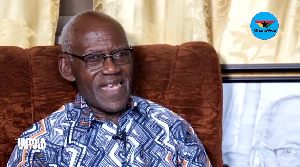Regional News of Wednesday, 6 December 2006
Source: GNA
Disaster management calls for cooperation - Deputy Minister
Aburi (E/R), Dec. 6, GNA - The Deputy Minister of the Interior, Mr Kweku Agyemang Manu has said disaster management should be seen as a multi-disciplinary and inter-institutional undertaking that called for cooperation and coordination among all stakeholders and partners.
"Making disaster management an integral part of national development policy brings home the fact that disaster risk reduction is about development of partnerships," he said, in speech at the opening of a day's workshop for journalists on disaster management at Aburi on Tuesday.
Mr Manu said effective disaster management required consistent advocacy programmes for political authorities and the Legislature, in addition to public awareness of the citizenry.
He said to sustain the voluntary spirit in disaster management and as part of efforts to reduce the vulnerability of livelihoods the Government had embarked upon risk management, through employment generation and poverty alleviation interventions. "A major example of this is a new natural resources management programme of nursing tree seedlings for income by volunteers at the local level.
"This provides the communities with a means of livelihood while they produce these seedlings, which would help in our national programme for protecting the environment as well as producing economic trees to improve upon the income generating capacity of the populations," he said.
Mr George Isaac Amoo, National Coordinator of the National Disaster Management Organisation (NADMO), said disaster and their impact were on the rise the world over.
He said disaster and their impact did not only threaten people's security and livelihood, but also caused long-term negative effects on social and economic development.
Mr Amoo said data showed that disasters in the last 10 years have claimed more than 600 lives in Ghana and affected over two billion people in the world.
The direct economic losses were estimated at 700 billion dollars. Losses resulting from disasters exceed the amount of international development aid to developing countries.
Mr Amoo said all countries were vulnerable to the increased impact of disasters, but the poor, whether as a country or an individual, suffered most.
He said to reverse the trend, more work needed to be done politically, socially and economically and more actions were urgently required at all levels to ensure that social and economic development did not generate more risk.
"Reducing disaster risks is no longer a matter of choice if we want to achieve the Millennium Development Goals and if we want to be counted among countries that were achieving sustainable development," Mr Amoo said.










